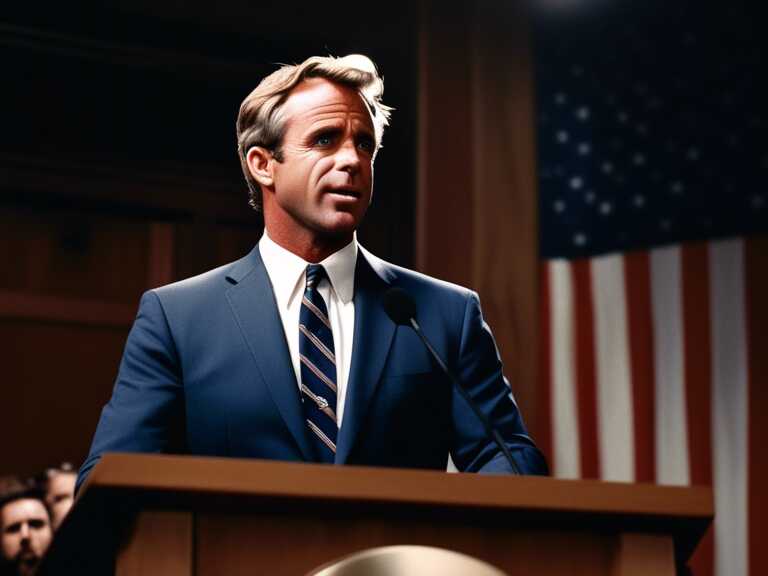
Robert F. Kennedy Jr. Suggests Politically Motivated Prosecutions of Capitol Rioters
Robert F. Kennedy Jr. questions Jan. 6 rioter prosecutions, suggesting political motives and supporting Trump's allies' view, despite contradicting reports.

Controversy has erupted over statements made by independent presidential candidate Robert F. Kennedy Jr. regarding the prosecution of rioters who attacked the U.S. Capitol on January 6, 2021. His comments have sparked a heated debate, drawing attention to the broader political landscape.
On the heels of a fundraising email that portrayed the rioters as "activists" who had been "stripped of their constitutional liberties," Kennedy faced criticism for the tone of his initial statement. Although his campaign attempted to clarify that it was an error, the controversy continued to unfold.
Continued Controversy
Despite the attempt to address the initial misstep, Kennedy's subsequent remarks retained a similar tone, suggesting that the prosecution of the rioters might be politically motivated - a viewpoint shared by former President Donald Trump and his allies. This has added fuel to an already contentious issue, with Kennedy expressing concerns about the potential political motives behind the prosecution of the Jan. 6 defendants.
Following scrutiny from media outlets such as CBS News, Kennedy retracted his claim that most protesters carried no weapons, acknowledging that several rioters had been convicted of carrying firearms into the Capitol and assaulting Capitol police with various weapons, including pepper spray and bludgeons. He emphasized that he did not intend to minimize the seriousness of the riot or any crimes committed on that day.
The Severity of the Jan. 6 Attack
It is important to underscore the severity of the events that transpired on January 6. The violent mob breached the Capitol, engaging in physical altercations with law enforcement, causing significant property damage, and posing a direct threat to elected officials. The chaos and aggression of the rioters resulted in over 1,300 individuals being charged, with approximately 500 facing accusations of assaulting, resisting, or impeding officers.
Furthermore, the legal aftermath of the attack has led to more than 800 rioters being sentenced, with at least 229 receiving a minimum of one year behind bars. Notably, the leaders of extremist groups implicated in the assault have been convicted of seditious conspiracy, underscoring the serious nature of the charges brought against them. This highlights the gravity of the repercussions facing individuals involved in the insurrection.
Kennedy's portrayal of the prosecution as politically motivated has sparked vigorous debate, drawing attention to the polarized perspectives surrounding the events of January 6. His remarks have been met with criticism from Democrats and others, who argue that downplaying the severity of the attack and questioning the nature of the prosecutions could have broader implications for the political landscape.
As an independent candidate with a fervent base of support, Kennedy's stance on the January 6 prosecutions has elevated concerns among Democrats and their allies. Given his lineage and political background, his comments have ignited fears that his candidacy could potentially divide the anti-Trump coalition, ultimately impacting the outcome of the upcoming election.
The controversy surrounding Kennedy's statements underscores the intersection of politics and justice, highlighting the broader implications of questioning the motives behind the prosecution of individuals involved in the Capitol attack. As the debate continues to unfold, it remains a contentious and divisive issue within the political landscape.
Share news















